Jennifer Schmidt
Stories
-
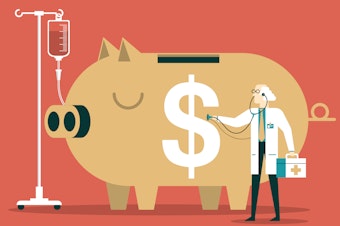
Slaying The 'Fee-for-Service Monster' Of American Healthcare
The United States spends trillions of dollars on healthcare every year, but our outcomes are worse than those of other countries that spend less money. Why? Physician and healthcare executive Vivian Lee explains the psychological and economic incentives embedded in the American model of medicine, and makes the case for a different way forward.
-
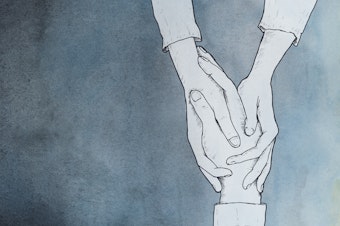
You 2.0: Empathy Gym
Some people are good at putting themselves in another person's shoes. Others may struggle to relate. But psychologist Jamil Zaki argues that empathy isn't a fixed trait. This week, in our final installment of You 2.0, we revisit a favorite episode about how to exercise our empathy muscles.
-

You 2.0: The Mind's Eye
Some challenges feel insurmountable. But psychologist Emily Balcetis says the solutions are often right in front of our eyes. This week, as part of our annual series on personal growth and reinvention, Emily explains how we can harness our sight to affect our behavior.
-
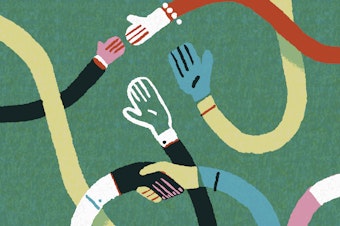
Creativity And Diversity: How Exposure To Different People Affects Our Thinking
There is great comfort in the familiar. It's one reason humans often flock to other people who share the same interests, laugh at the same jokes, hold the same political views. But familiar ground may not be the best place to cultivate creativity. Researchers have found that people with deep connections to those from other countries and cultures often see benefits in terms of their creative output. This week, we revisit a favorite 2018 episode about the powerful connection between the ideas we dream up and the people who surround us, and what it really takes to think outside the box.
-

Culture Wars And The Untold Story Of Lyndie B. Hawkins
In 2019, a novel by a new author, Gail Shepherd, arrived in bookstores. The True History of Lyndie B. Hawkins tells the story of a young white girl growing up in the South. The book has been well received, but it is not the book Shepherd intended to write. In her original drafts, Shepherd, a white author, created a Lyndie who was Vietnamese-American, and dealing with issues of race in the deep South. This week we look at what it means to be a storyteller in a time of caustic cultural debate and ask when, if ever, is it okay to tell a story that is not your own?
-
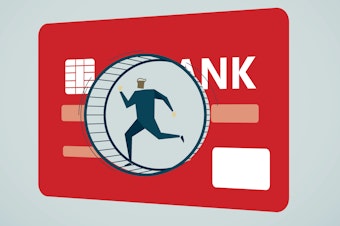
Buy, Borrow, Steal: How Debt Became The 'Sugar-Rush' Solution To Our Economic Woes
Policymakers have a tried-and-true game plan for jump-starting the economy in times of severe recession: Push stimulus packages and lower interest rates so Americans will borrow and spend. But economist Amir Sufi says the way we traditionally address a recession is deeply flawed. He argues that by encouraging "sugar-rush" solutions, the nation is putting poor and middle-class Americans and the entire economy at even greater risk. This week we look at the role of debt as a hidden driver of recessions, and how we might create a more stable system.
-
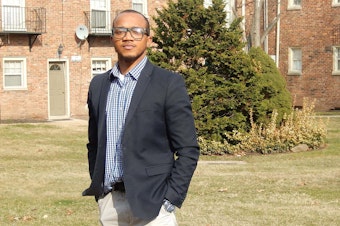
Rap on Trial: How An Aspiring Musician's Words Led To Prison Time
In the past few weeks, the nation has been gripped by protests against police brutality toward black and brown Americans. The enormous number of demonstrators may be new, but the biases they're protesting are not. In 2017, we looked at research on an alleged form of bias in the justice system. This week, we revisit that story, and explore how public perceptions of rap music may have played a role in the prosecution of a man named Olutosin Oduwole.
-
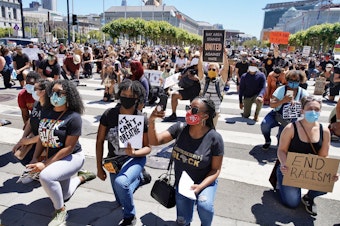
The Air We Breathe: Implicit Bias And Police Shootings
President Trump said this week that a few "bad apples" were to blame for police killings of black people. But research suggests that something more complicated is at play — a force that affects everyone in the culture, not just police officers. In this bonus episode, we revisit our 2017 look at implicit bias and how a culture of racism can infect us all.
-
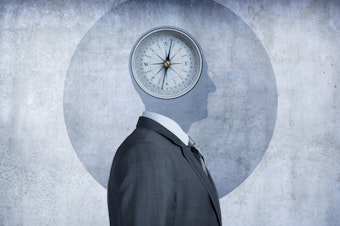
Justifying The Means: What It Means To Treat All Suffering Equally
When we are asked to make a moral choice, many of us imagine it involves listening to our hearts. To that, philosopher Peter Singer says, "nonsense." Singer believes there are no moral absolutes, and that logic and calculation are better guides to moral behavior than feelings and intuitions. This week, we talk with Singer about why this approach is so hard to put into practice, and look at the hard moral choices presented by the COVID-19 pandemic.
-
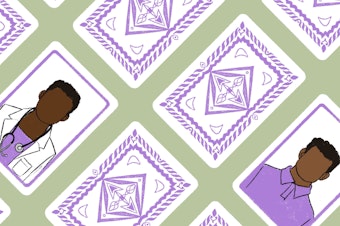
People Like Us: How Our Identities Shape Health And Educational Success
Far from being "the great equalizer," COVID-19 has disproportionately sickened and killed African Americans and Latinos in the U.S. Many of the reasons for these inequalities reach back to before the pandemic began. This week, we return to a 2019 episode that investigates a specific source of racial disparities in medicine and beyond—and considers an uncomfortable solution.